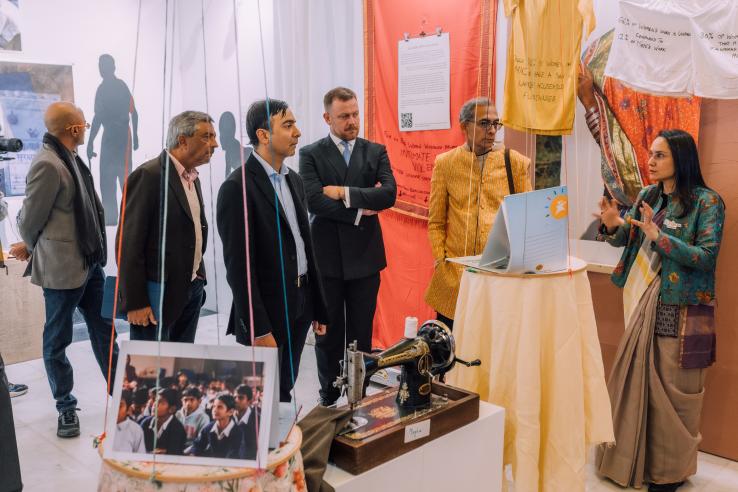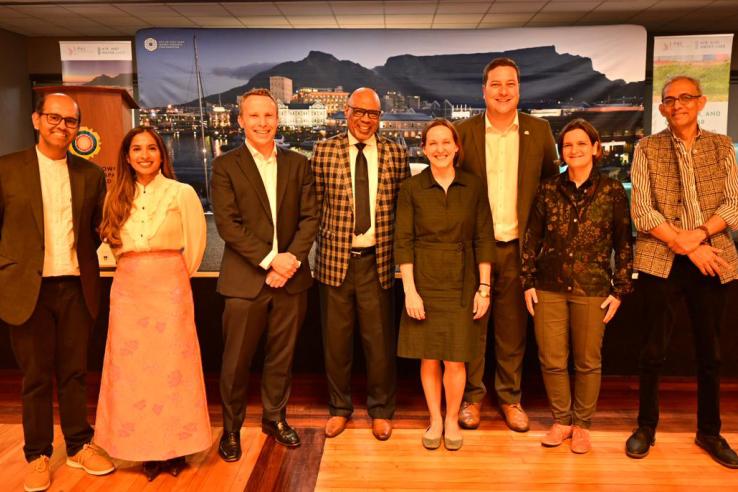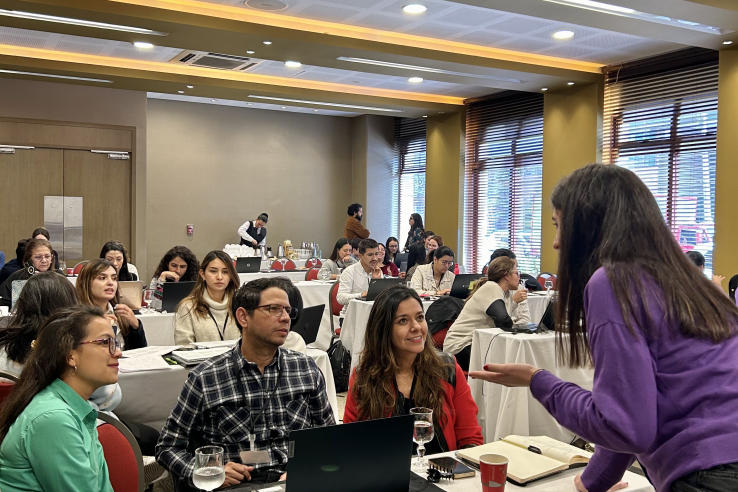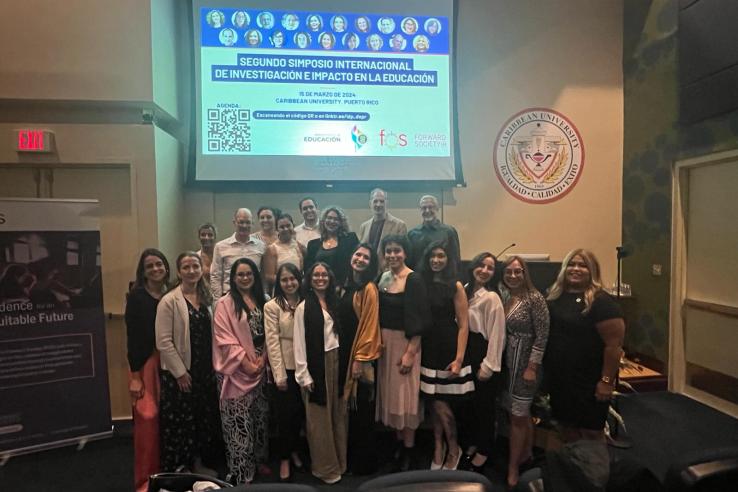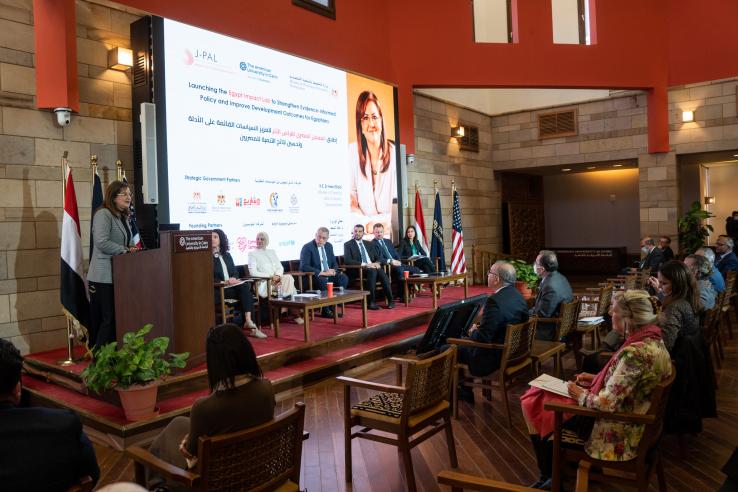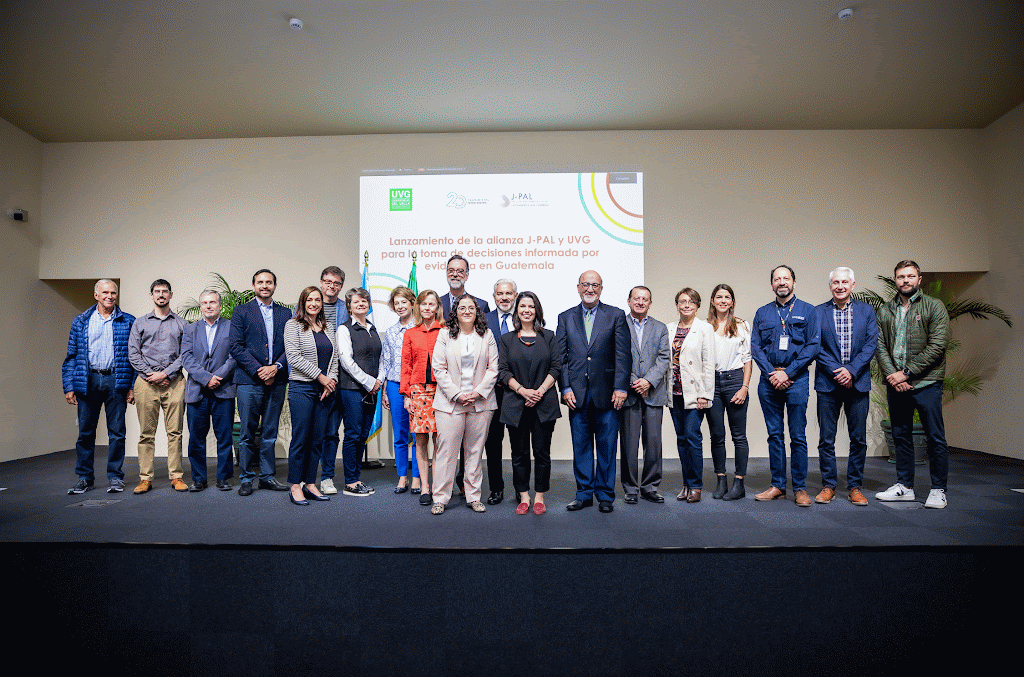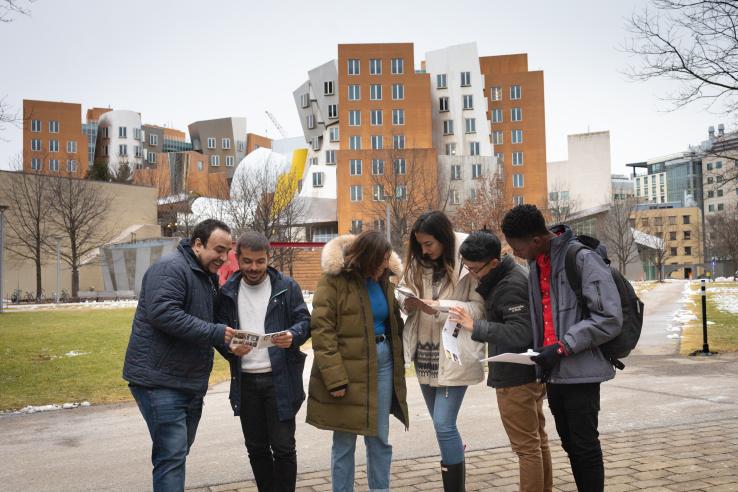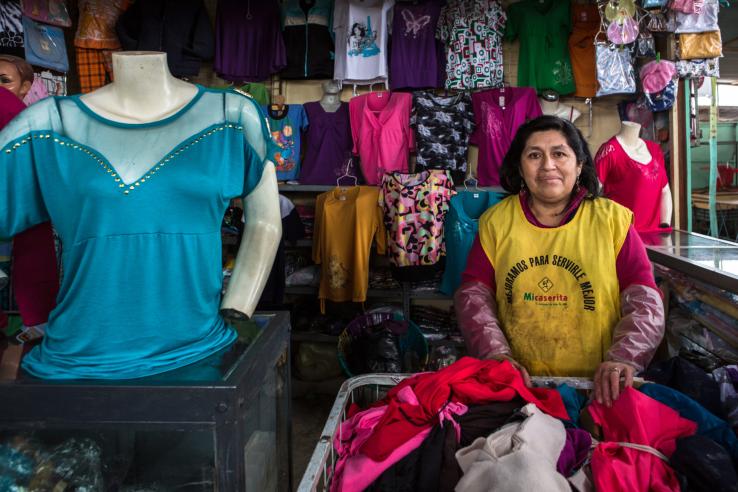Displaying 3376 - 3390 of 8491
Resource
Basic page
To mark J-PAL’s 20th anniversary, J-PAL South Asia organized the "Shaping Policy, Transforming Lives" exhibition in Bikaner House, New Delhi. The exhibition celebrated the success of J-PAL South Asia’s partners in the government, academia, civil society, and philanthropic organizations in tackling...
Event
On March 14, J-PAL Africa at the University of Cape Town, the City of Cape Town, and Community Jameel launched the Water, Air, and Energy (WAE) Lab, dedicated to clean air, water, and reliable energy for Capetonians.
Initiative Resource
Initiative projects and documents
Initiative Resource
Initiative projects and documents
Event
J-PAL and Innovations for Poverty Action (IPA) are pleased to announce that applications are now open for a three-day randomized evaluation design workshop as part of the Displaced Livelihoods Initiative (DLI) and ongoing work to improve humanitarian protection programs to develop projects in the...
Update
J-PAL Updates
J-PAL North America's April newsletter features our research partnerships in Puerto Rico and new research results on medical debt relief.
Update
J-PAL Updates
In the April 2024 newsletter, read about launching the Cape Town Water, Air, and Energy Lab, a new Policy Insight on preventing crime and violence, and lessons from the Nobel Symposium.
Event
Join J-PAL North America as we connect state and local climate leaders, government associations, and academic researchers from across the country to advance evidence for climate action. During our July convening, participants will share opportunities and develop strategies for researcher-government...
Update
J-PAL Updates
Dr. Hala El Said, Egypt's Minister of Planning and Economic Development, has officially approved the integration of the Egypt Impact Lab (EIL) into the organizational structure of the National Institute for Governance and Sustainable Development to support evidence-based policies and interventions...
Event
J-PAL Latinoamérica y el Caribe (LAC) y la Universidad del Valle de Guatemala (UVG) le invitan al evento por el primer año del inicio de su alianza. El objetivo es presentar los avances del trabajo conjunto de UVG y J-PAL LAC para promover la toma de decisiones informada por evidencia en Guatemala.
Update
J-PAL Updates
This expansion adds a new Public Policy Track to complement the existing International Development Track, opening up new avenues for student learning and research. Designed to tackle poverty alleviation and other pressing policy challenges in the United States and other high-income countries, the...
Event
J-PAL LAC ofrecerá una capacitación gratuita en línea para introducir la evaluación de impacto aleatorizada y el uso de evidencia para la generación de mejores programas sociales y gubernamentales.
Blog
Deputy Director of the Western Fire Chiefs Association Chief Bob Horton and researchers Judson Boomhower (UC San Diego) and Patrick Baylis (University of British Columbia) discuss their research partnership to evaluate a program encouraging households to take up wildfire prevention practices.
Blog
This blog is the final installation of a three-part series by J-PAL South Asia’s executive director Shobhini Mukerji reflecting on two decades of advancing evidence-based policymaking.
